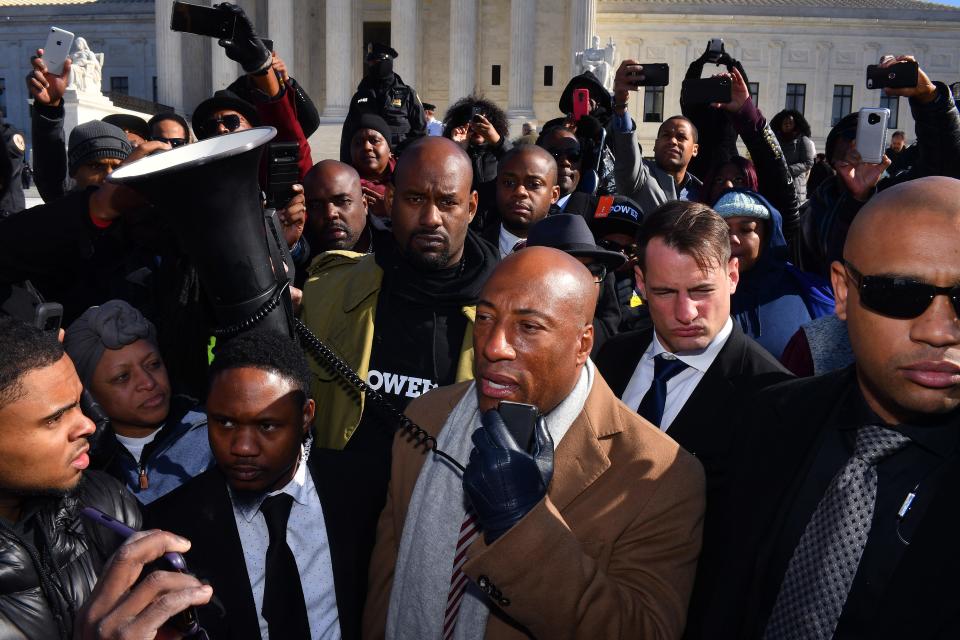Supreme Court affirms strict standard to prove race discrimination in contracting

WASHINGTON – The Supreme Court ruled Monday that racial discrimination claims in contracting must meet a strict standard, sending a lawsuit against cable TV giant Comcast back to a lower court for further review.
The unanimous ruling, written by Associate Justice Neil Gorsuch, was a victory for Comcast and, by extension, Charter Communications. Both were sued by African American media mogul Byron Allen for refusing to distribute his stations.
To win the case in lower courts now, Allen's Entertainment Studios Network and the National Association of African American-Owned Media will have to prove that race was the determinative factor in the snub. During oral argument in November, Associate Justice Samuel Alito wondered if the case was headed "toward its inevitable doom."
Civil rights groups have said it's crucial that such discrimination claims be given their day in court under an 1866 civil rights law governing business contracts.
"The court's decision puts in place a tougher burden of proof that will likely make it more difficult for many discrimination victims," said Kristen Clarke, president of the Lawyers’ Committee for Civil Rights Under Law. “No doubt, this ruling may shut the courthouse door on some discrimination victims."
University of California-Berkeley Law School Dean Erwin Chemerinsky, representing Allen's Entertainment Studios, said during oral argument that Congress in 1866 wanted "to open the door to claims with regard to race discrimination in contracting, not to close that door."

Allen's original lawsuit against Comcast included a claim later dropped that a company executive had said, "We're not trying to create any more Bob Johnsons" – a reference to the founder of Black Entertainment Television. Comcast has denied the allegation.
"Comcast did not want to support an African American media entrepreneur who would compete against the white-owned networks Comcast owned and/or carried," the complaint alleged.
Allen lost in federal district court but won a reversal at the U.S. Court of Appeals for the 9th Circuit. A key issue in the case before the Supreme Court was whether his network must show that race was the sole reason for the denial of a contract or just one factor.
Comcast asked the justices to reverse the appeals court's decision, claiming Entertainment Studios "alleged a vast conspiracy among video programming distributors, governmental agencies, and prominent civil-rights figures," including the NAACP and Al Sharpton.
Instead, Comcast's lawyer, Miguel Estrada, told the court that Allen's company was turned down for "entirely appropriate business reasons having nothing to do with race."
The cable company issued a statement Monday heralding the high court's decision.
"The well-established framework that has protected civil rights for decades continues," Comcast said. "The nation’s civil rights laws have not changed with this ruling; they remain the same as before the case was filed."
This article originally appeared on USA TODAY: Racial discrimination: Supreme Court sends back case against Comcast

